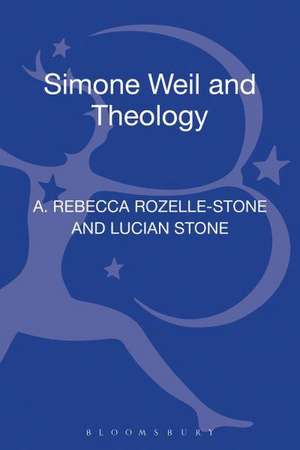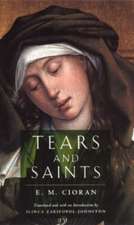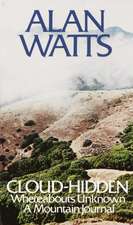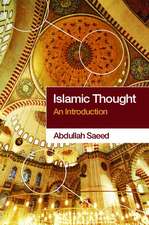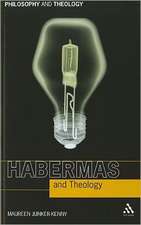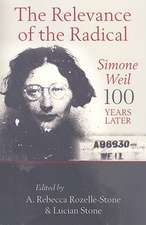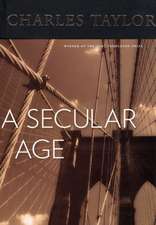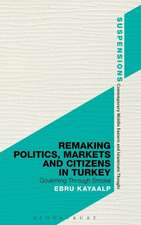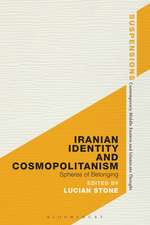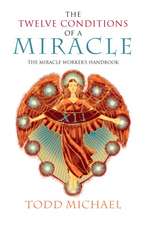Simone Weil and Theology: Philosophy and Theology
Autor Professor A. Rebecca Rozelle-Stone, Professor Lucian Stoneen Limba Engleză Hardback – 27 mar 2013
| Toate formatele și edițiile | Preț | Express |
|---|---|---|
| Paperback (1) | 178.65 lei 6-8 săpt. | |
| Bloomsbury Publishing – 27 mar 2013 | 178.65 lei 6-8 săpt. | |
| Hardback (1) | 568.40 lei 6-8 săpt. | |
| Bloomsbury Publishing – 27 mar 2013 | 568.40 lei 6-8 săpt. |
Din seria Philosophy and Theology
- 14%
 Preț: 178.40 lei
Preț: 178.40 lei - 23%
 Preț: 178.22 lei
Preț: 178.22 lei - 23%
 Preț: 177.77 lei
Preț: 177.77 lei - 11%
 Preț: 217.09 lei
Preț: 217.09 lei - 23%
 Preț: 153.16 lei
Preț: 153.16 lei - 14%
 Preț: 163.08 lei
Preț: 163.08 lei - 22%
 Preț: 595.90 lei
Preț: 595.90 lei - 8%
 Preț: 158.64 lei
Preț: 158.64 lei - 14%
 Preț: 164.13 lei
Preț: 164.13 lei - 12%
 Preț: 215.69 lei
Preț: 215.69 lei - 12%
 Preț: 214.52 lei
Preț: 214.52 lei - 14%
 Preț: 189.61 lei
Preț: 189.61 lei - 14%
 Preț: 163.78 lei
Preț: 163.78 lei - 14%
 Preț: 165.03 lei
Preț: 165.03 lei - 14%
 Preț: 165.10 lei
Preț: 165.10 lei - 14%
 Preț: 165.03 lei
Preț: 165.03 lei - 22%
 Preț: 594.77 lei
Preț: 594.77 lei - 14%
 Preț: 165.48 lei
Preț: 165.48 lei - 14%
 Preț: 176.44 lei
Preț: 176.44 lei - 14%
 Preț: 175.98 lei
Preț: 175.98 lei - 14%
 Preț: 172.27 lei
Preț: 172.27 lei - 13%
 Preț: 180.61 lei
Preț: 180.61 lei - 11%
 Preț: 177.84 lei
Preț: 177.84 lei - 14%
 Preț: 179.00 lei
Preț: 179.00 lei
Preț: 568.40 lei
Preț vechi: 726.21 lei
-22% Nou
Puncte Express: 853
Preț estimativ în valută:
108.76€ • 113.86$ • 89.99£
108.76€ • 113.86$ • 89.99£
Carte tipărită la comandă
Livrare economică 05-19 aprilie
Preluare comenzi: 021 569.72.76
Specificații
ISBN-13: 9780567537249
ISBN-10: 0567537242
Pagini: 192
Dimensiuni: 138 x 216 x 23 mm
Greutate: 0.48 kg
Ediția:New.
Editura: Bloomsbury Publishing
Colecția T&T Clark
Seria Philosophy and Theology
Locul publicării:London, United Kingdom
ISBN-10: 0567537242
Pagini: 192
Dimensiuni: 138 x 216 x 23 mm
Greutate: 0.48 kg
Ediția:New.
Editura: Bloomsbury Publishing
Colecția T&T Clark
Seria Philosophy and Theology
Locul publicării:London, United Kingdom
Caracteristici
assists
both
readers
who
are
new
to
Weil
and
those
who
have
studied
her
before
Notă biografică
Lucian
Stone
is
Assistant
Professor
in
the
Department
of
Philosophy
and
Religion,
The
University
of
North
Dakota,
USA.
Cuprins
Introduction:
On
Being
a
Paradox/1.
Atheism
and
Mysticism/
2.
Christology
and
Religious
Pluralism/
3.
Human
Nature
and
Decreation/
4.
Love
and
Detachment/
5.
Beauty
and
Anonymity/
6.
Possibility
and
Impossibility/
Conclusion:
Educating
Paradox
Recenzii
Rebecca
Rozelle-Stone
and
Lucian
Stone
critically
apply
Simone
Weil's
"negative-reflective"
theology
to
attitudes
of
modernity
by
grappling
with
the
obscurities
in
her
text.
They
explore
her
theories
of
attention
as
negative
effort,
creative
action
in
"decreation",
positive
elements
in
affliction,
essential
ties
between
love
and
justice,
plus
her
ambivalence
toward
Judaism.
This
presentation
of
her
thought
opens
the
reader
to
Simone
Weil's
conception
of
human
life,
as
she
believed
it
to
be
revealed
in
the
Gospels.
Extensive
references
to
other
major
thinkers
and
personal
insights
into
this
French
philosopher's
thought
make
this
work
a
provocative
and
valuable
contribution
to
Weil
studies.
This is an extended set of reflections that begin in Weil's claim that "the gospel contains a conception of human life and not a theology." In seriously engaging the post-modern, the authors draw out Weil's deep and subtle meditations on the human temptation to self-deception and on the possibilities of transformation in today's world. There are wonderful insights here on attention, beauty, grace and education that go to the real depth of Weil's thinking. These are things to be thought about carefully and for a long time.
Rebecca Rozelle-Stone and Lucian Stone have deftly bypassed the current sterile debates between militant atheists and simplistic Christian fundamentalists by engaging critically with the deep, paradoxical and sometimes disturbing writings of Simone Weil. Many postmodern themes such as the body, the erotic, and the gift are examined through the lens of Weil's understanding of the Gospels which do not contain a theology but manifest a "conception of human life." God or the good is like the sun, only to be understood by an examination of what is illuminated not by a direct gaze. Human goodness is not to be achieved by acts of the will but by attention and decreation. The authors set out to explain Weil's reasons for asserting this. Along the way, they develop an insightful critique of today's liberal, capitalist, therapeutic culture with its tendency to medicalize and psychologize every aspect of humanity.
Two things need to be said in praise of this book and its ability to uncover Weil's depth, leaving a good deal of her cutting edge insights about human selves intact, and not muted ... This book fortunately keeps a strong sense of Weil's edge. But this is because, second, in talking about Weil's issues, it does so by itself engaging those issues in some wonderfully concrete, contemporary ways. The use of studies, contemporary philosophical literature, including feminist philosophy, and the illustrations used to support those points are all exceptionally to the point ... Not only a very good, and insightful book on Simone Weil's thinking, but a very good and wise book overall, that will bear close attention itself.
This is an extended set of reflections that begin in Weil's claim that "the gospel contains a conception of human life and not a theology." In seriously engaging the post-modern, the authors draw out Weil's deep and subtle meditations on the human temptation to self-deception and on the possibilities of transformation in today's world. There are wonderful insights here on attention, beauty, grace and education that go to the real depth of Weil's thinking. These are things to be thought about carefully and for a long time.
Rebecca Rozelle-Stone and Lucian Stone have deftly bypassed the current sterile debates between militant atheists and simplistic Christian fundamentalists by engaging critically with the deep, paradoxical and sometimes disturbing writings of Simone Weil. Many postmodern themes such as the body, the erotic, and the gift are examined through the lens of Weil's understanding of the Gospels which do not contain a theology but manifest a "conception of human life." God or the good is like the sun, only to be understood by an examination of what is illuminated not by a direct gaze. Human goodness is not to be achieved by acts of the will but by attention and decreation. The authors set out to explain Weil's reasons for asserting this. Along the way, they develop an insightful critique of today's liberal, capitalist, therapeutic culture with its tendency to medicalize and psychologize every aspect of humanity.
Two things need to be said in praise of this book and its ability to uncover Weil's depth, leaving a good deal of her cutting edge insights about human selves intact, and not muted ... This book fortunately keeps a strong sense of Weil's edge. But this is because, second, in talking about Weil's issues, it does so by itself engaging those issues in some wonderfully concrete, contemporary ways. The use of studies, contemporary philosophical literature, including feminist philosophy, and the illustrations used to support those points are all exceptionally to the point ... Not only a very good, and insightful book on Simone Weil's thinking, but a very good and wise book overall, that will bear close attention itself.
